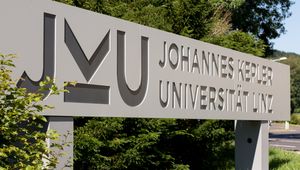A JKU study is looking at the current teacher shortage at Austrian schools and the key role of on-site school leadership.

School boards and school administrators are facing challenges at schools and in education. In addition to legitimate demands for a more modern educational system, high-quality schools, and a high standard of classroom instruction, almost half of Austria's schools are facing severe personnel shortages, and some 80% of schools of gravely understaffed.
School principals play an integral role in ensuring quality standards at schools and on-site educational development, including the ability to manage diverse responsibilities. School management teams are also currently under an enormous amount of pressure and the majority are at their limit, feeling overworked and overwhelmed.
A recent study conducted by the Linz School of Education at the Johannes Kepler University Linz, the 2024 School Leadership Barometer Austria, surveyed school principals from throughout Austria and across all types of schools, asking for representative opinions and experiences. The findings will be used to draw up recommendations for policy-makers and administrators.
Univ. Prof. Dr. Stephan Gerhard Huber (head of the study at the JKU School of Education) remarked: "Our schools are currently facing a multitude of challenges, including digitalization, migration issues, and personnel shortages. As managers, school principals play a key role and findings from the 2024 School Leadership Barometer Austria reveal that these key individuals in particular are experiencing major challenges at the moment. A large number of them feel overwhelmed and are at their limit. In addition to the number of challenges, the lack of staff is a major problem."
Personnel Shortage at Austrian Schools
The initial analyses shows that around 45% of school principals stated that they are experiencing a precarious shortage of teaching staff at their school and the impact is far-reaching. This deficit is particularly acute in the following areas: special education, all-day schooling, primary school teachers, and in the subjects of physics, chemistry, PE, and music education.
The lack of qualified educators is resulting in some classes having to be canceled, or combined. The deficit also means that part-time and full-time teachers have to work overtime, and some teachers are teaching subjects in educational fields other than their own.
The surveyed school principals pointed out that some effective measures to combat the teacher shortage would include raising salaries, improving working conditions, hiring additional administrative staff, and shortening the time span of teacher education programs.
Workload and Job Satisfaction
The initial findings of the 2024 School Leadership Barometer Austria reveal a rather high level of job satisfaction among school principals. However, there is an extremely high percentage of school principals (41%) who experience a high level of stress, a heavy workload, and a low level of job satisfaction. Approximately one-third of those surveyed also stated they feel constantly overwhelmed at work. Roughly half of them stated that they rarely feel like they can truly “switch off” after hours. According to school principals themselves, one of the reasons behind their perceived level of pressure may be that in the past five years, their responsibilities have increased (20%), and have become much more demanding (71%). On-site support and resources as well as ongoing professional development measures also play a role.
One potential solution could involve creating support structures, such as school secretaries, vice-principals, and include others in school management and school development responsibilities. In the future, professionalizing principals as managers and professional quality management at schools will also become more important: almost 87% of principals are currently in favor of hiring a permanent vice-principal who can also take on some of the management responsibilities principals currently perform.
In addition to spending large amounts of time addressing management issues, there are countless organizational and administrative tasks that are considered to be fairly cumbersome.
The Strain of a Heavy Teaching Load
In addition to school management responsibilities, school principals in Austria also spend an extremely high percentage of their time in the classroom. While reducing the weekly number of classroom hours would facilitate performing their management role more effectively, it would also be at odds with the current teacher shortage. The school principals believe that this dilemma is reflected in the fact that the regulations governing the principals’ teaching responsibilities at primary schools, special ed schools, and secondary schools do not correctly reflect the principals’ workload.
School leadership in Austria is not yet at the international standard that a school management function requires.
An Additional Heavy Workload and Long Hours
Approximately one-third of school principals stated that they had worked non-compensated overtime, or a considerable additional amount of overtime, during the past school year. In terms of volume, this is between 100+ hours than 400 hours of overtime per year (100-200 hours: 14%; 200-400 hours: 11%; 400 and more hours: 6%. 300 hours of uncompensated overtime is approximately 15 hours per week). For around half of the school principals, the amount of overtime, or additional overtime, has recently been on the rise. The reasons cited include additional educational development projects, additional educational work, disciplinary issues, inclusion issues, integration and migration issues, disputes with parents, teacher shortages, personnel management responsibilities, internal disputes with - and among - teaching staff, introducing new school authority requirements, and, above all, time-consuming administrative responsibilities. The latter could be alleviated by having qualified secretarial staff.
The analysis indicates that the more administrative responsibilities school principals have, the less time they have to perform other responsibilities, including educational activities at the school.
There are several reasons why teachers experience work-related pressure: On one hand, they have their own teaching responsibilities and, on the other hand, they have to work overtime as a result of various responsibilities, such as dealing with parental disputes, scheduling issues, time-consuming administrative responsibilities, and activities for the Federal Ministry.
Working with the School Inspection Authority
When it comes to working with the educational board, 94% of school principals feel they are not involved enough in the ministry's decision-making processes. They would advocate for a legal requirement on the part of the ministry and the education authorities to include them - as school principals - in decision-making processes.
In addition, the surveyed school principals indicated that schools and school principals need more support by school authorities- such as the ministry and the education boards – and, depending on the type of school, they need support to diffuse disputes with parents, school students, and employees. They also frequently mentioned support regarding (school) legal issues and, in some cases, personnel planning.
 Go to JKU Homepage
Go to JKU Homepage











